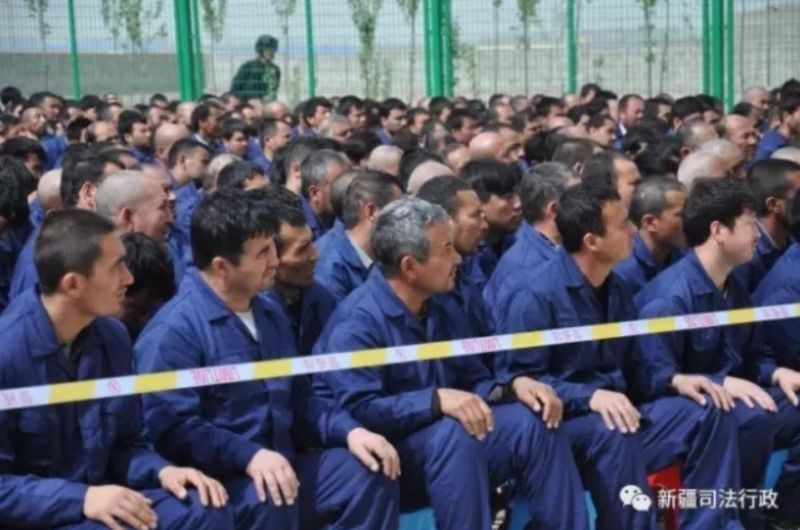US imaging company Kodak has removed an image of China’s Xinjiang from its Instagram page taken by a photographer who described the region as an “Orwellian dystopia.”
Apologising for the post, the company said on its WeChat account on Tuesday that it will “respect the Chinese government and Chinese laws.”

The deleted post was taken from French documentary photographer Patrick Wack’s new collection of images captured in China’s northwestern region from 2016 to 2020.
In a post on his own Instagram page earlier this month, Wack had referred to the detention of Uyghur Muslims: “In recent years, the region has been at the centre of an international outcry following the mass-incarceration of its Uyghur population and other Muslim minorities,” his post announcing the pre-sale of his book read.
“This body of work captures a visual narrative of the region and is a testimony to its abrupt descent into an Orwellian dystopia,” the post continued.
Reports from international rights groups of state-led mass human rights abuses against Uyghur Muslims and other ethnic minorities in Xinjiang have emerged since 2016. The reports, which detail abuses including forced detention, labour and abortions, has prompted the US, as well as the Canadian and UK parliaments to accuse Beijing of “genocide.”
Beijing has rebutted these claims, saying its “vocational training centres” in the region were necessary to provide employment and to erase terrorism. It frequently lashes out at statements by Western governments expressing concern at the treatment of ethnic minorities.
‘Respect the Chinese gov’t’
Kodak sought to distance itself from the photographer on Tuesday, apologising for the “misunderstanding” and saying it will “continue to respect the Chinese government” and “keep itself in check.”
“Content from the photographer Patrick Wack was recently posted on this Instagram page. The content of the post was provided by the photographer and was not authored by Kodak,” the company’s statement on Tuesday read, after the post was deleted.
It added that its Instagram page was not intended to be a “platform for political commentary” and disabled comments on the post in question.
“The views expressed by Mr. Wack do not represent those of Kodak and are not endorsed by Kodak. We apologize for any misunderstanding or offense the post may have caused,” the company said.
In a separate statement on Chinese social media WeChat, the company vowed to cooperate with the Chinese government and respect Beijing.
“For a long time, Kodak has maintained a good relationship with the Chinese government and has been in close cooperation with various government departments. We will continue to respect the Chinese government and the Chinese law,” the statement read.
“We will keep ourselves in check and correct ourselves, taking this as an example of the need for caution,” it added, saying “management loopholes” may have been responsible for the post.

An anonymous opinion piece in the state-run Global Times accused Wack of wanting to “make money” with his work: “In the face of this anti-China slander, China should know how to deal with it, how to fight back public opinion, and how to guide and transform them… For Kodak, it is better for the company to realize that there are numerous photographers and vloggers in China who use Kodak products to create works that reflect life in Xinjiang…”
HKFP has reached out to Kodak for comment.
Support HKFP | Policies & Ethics | Error/typo? | Contact Us | Newsletter | Transparency & Annual Report | Apps
Help safeguard press freedom & keep HKFP free for all readers by supporting our team

LATEST FROM HKFP
HKFP has an impartial stance, transparent funding, and balanced coverage guided by an Ethics Code and Corrections Policy.
Support press freedom & help us surpass 1,000 monthly Patrons: 100% independent, governed by an ethics code & not-for-profit.










